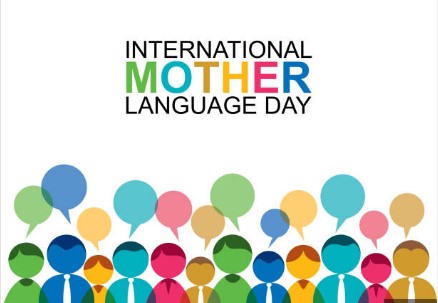By P.K.Balachandran
The Bangladesh High Commission, with the cooperation of the Sri Lankan Ministry of Education and several national and international organizations, on Tuesday put up a grand show to mark International Mother Language Day.
School kids of various nationalities and language groups sang and recited poems in their mother languages, while others performed dances to display the cultures that their languages express. The function was held at Independence Square in Colombo.
The program began with a choral group from the Swami Vivekananda (Indian) Cultural Center perfectly rendering Rabindranath Tagore’s song Eso Shyaamolo Sundaro in praise of nature. This was followed by Humko Man ki Shakti Dena a prayer set to tune by Vasant Desai and sung by the late Vani Jayaram in the iconic 1971 Hindi film Guddi starring Jaya Bhaduri and Dharmendra.
Next was a rendering of a Lata Walpola prayer song in Sinhala by Nirmali and Maliniti. A little Russian boy then sang a song in his language on hopes for a bright future. The lad’s voice had an amazing range and the rendering was flawless. A Sinhalese girl Akarsha Mallwarachchi recited a Russian poem by Yevgeny Yevtushenko with feeling.
Vaishali Yogarajan tunefully sang the famous Subramanya Bharathi song Aaduvomey Pallu Paaduvomey celebrating freedom and unity. A troupe of kids from the Maldivian Educational and Cultural Centre in Colombo performed a dance portraying the life of fishermen and recited poems in the Maldivian language Dhihevi. A Persian poem on a mother’s love for her child was recited by an Iranian girl Mobina. The fitting finale was a vigorous dance by the Sri Lankan group Island Stoppers.
Prior to the entertainment programs, the Minister for Higher Education Dr Suren Raghavan gave away prizes to the winners of essay and poetry competitions among school kids from the Sinhala and Tamil streams on the theme: mother language and unity. The competition, which drew entries from all parts of the island, was held by the Ministry of Education.
In his speech, Dr.Raghavan said that there are at present 6,500 living languages in the world, out of which, more than 2000 are in South Asia. These languages will have to be preserved. Linguistic diversity has to be encouraged. But diversity necessitates unity. He pointed out how, in Sri Lanka, the non-recognition of linguistic diversity led to problems of national unity. He appealed to learning from such experiences.
The UN Resident official in Sri Lanka, Sarat Dash, recalled the role played by the students of Bangladesh in getting their language, Bangla, its rightful place and how their movement led to the establishment of Bangladesh, the only nation-state in the world which came into being as a result of a language rights struggle.
The mother language is the heart of our existence, Dash said. It encapsulates several things, including a nation’s history and culture. He regretted that 40% of the world’s 6, 700 are on the verge of extinction. By promoting language diversity, a nation would develop mutual understanding, he added.
The High Commissioner of Bangladesh, Tareq Ariful Islam, said that International Mother Language Day has its origin in the struggle for the rights of the Bangla language. The date for Mother Language Day – February 21 – was the day on which students engaged in that cause in 1952 were martyred. The students of the University of Dhaka, with the support of the general public, arranged massive rallies and meetings. On 21 February 1952, police opened fire on these rallies. Abdus Salam, Abul Barkat, Rafiq Uddin Ahmed, Abdul Jabbar and Shafiur Rahman died, while hundreds of others were injured. This was a rare incident in history, where people sacrificed their lives for their mother tongue.
The fight for the inalienable right to their mother language led to the recognition of February 21 as International Mother Language Day, first by UNESCO in 1999, due to Bangladesh’s initiative. Subsequently, in 2007, the UN General Assembly endorsed it.
Tareq Ariful Islam said recognition of language diversity and its promotion ensure social harmony. He further said that, given the fact that one language disappears every two weeks, efforts are now being made to preserve languages and their scripts. Scripts are being preserved digitally for posterity and these are available on Google, he added.





